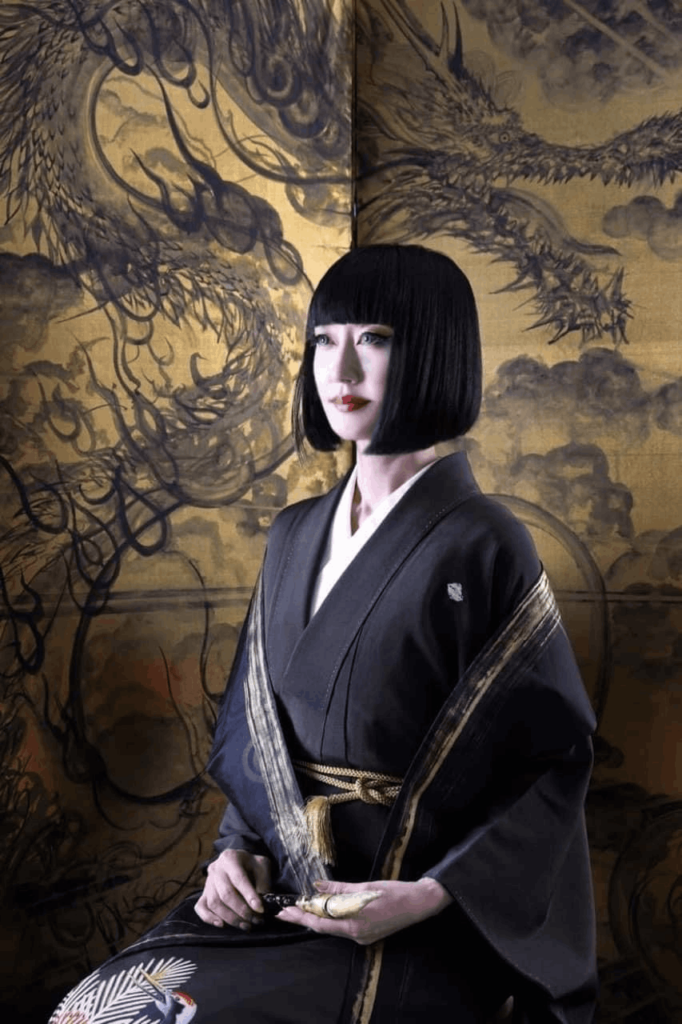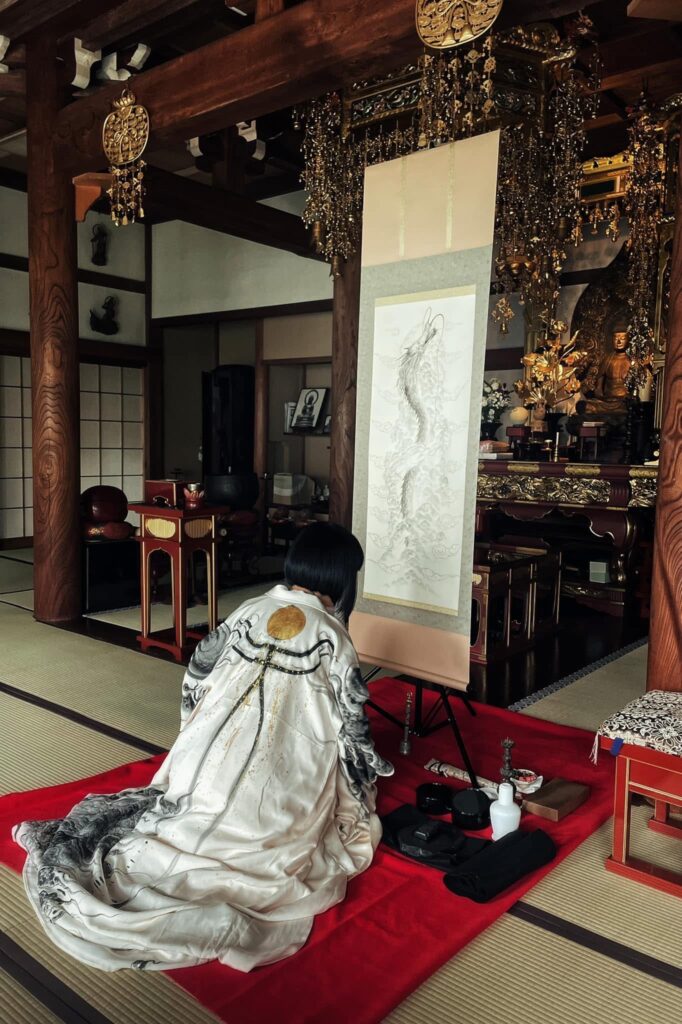
- This event has passed.
Performance: Traditional Japanese Kimono Painting by Scara Abe
March 18 @ 6:00 pm - 7:30 pm

@
In conjunction with our special exhibition The Subversive Eye: Surrealist and Experimental Photography from the David Raymond Collection, join us for an evening of music and live traditional Japanese painting by Scara Abe. From Tokyo, Japan, Scara travels to enrich the audience with a sacred experience of creating Kachō Fūgetsu art and the opportunity to purchase her artwork.
Please visit Scara’s website for more information and performance videos.
Location: The Dalí Museum’s Will Raymund Theater
Tickets: $5 for Museum members | $10 for non-members
MEMBER CARD # necessary to purchase member tickets. Don’t see it on your card? Click here.
Not yet a member? Join today.
Scara Abe
Artist, Painter, Performer
Tokyo, Japan
I am an artist dedicated to expressing the profound beauty, soul and ancient mystique of the Japan. Through deep connection with the forest, I listen to the voices of nature, offering prayers for the earth and the cosmos while creating art that bridges present experiences with future possibilities.
One of my works was selected to represent Japan in a prestigious global competition at the Louvre Museum in Paris. I have been honored with numerous awards both in Japan and internationally, including recognitions in New York and across various European countries, notably France.
花鳥風月
“Kachō Fūgetsu” (花鳥風月) is a traditional Japanese phrase that encapsulates the beauty and poetry of nature. It is composed of four kanji characters:
– 花 (Ka) – Flowers/blossoms- 鳥 (Chō) – Birds- 風 (Fū) – Wind- 月 (Getsu) – Moon
This phrase represents more than just a simple list of natural elements. It embodies the Japanese aesthetic appreciation of nature and its changing seasons, including:- Cherry and plum blossoms in spring- Birds singing in trees- The autumn breeze at dusk- The moon shining in the winter sky.
The concept goes beyond mere natural description – it represents a fundamental aspect of Japanese cultural sensitivity and artistic appreciation. It appears frequently in traditional Japanese arts such as:- Waka and haiku poetry- Ink wash painting (sumi-e)- Traditional garden design- Classical literature
In modern usage, “Kachō Fūgetsu” is often used to describe scenes of natural beauty or situations that evoke a profound sense of artistic refinement and appreciation of nature. It reflects the Japanese cultural value of finding beauty in the subtle changes of the natural world and living in harmony with nature’s rhythms.
The term exemplifies the Japanese aesthetic principle of finding profound beauty in simple, natural elements rather than artificial or elaborate constructions.





